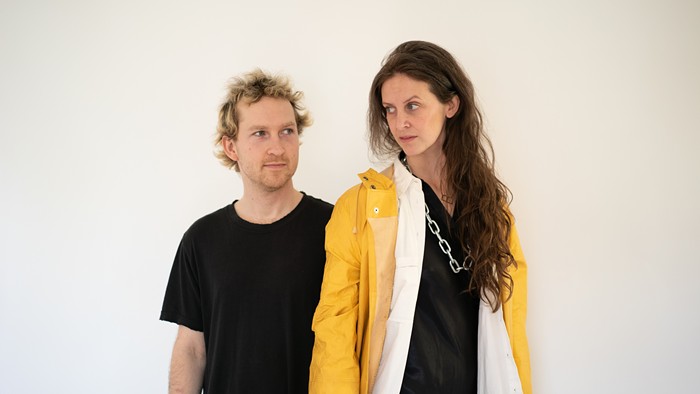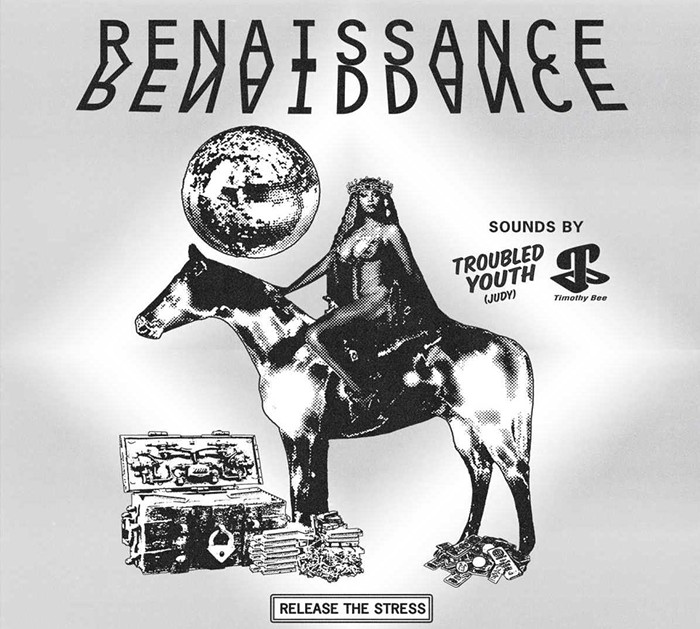SINCE MAY 2010, Will Toledo has been putting music on Bandcamp under the name Car Seat Headrest. Lots of music.
According to the listed release dates, Toledo, now 23 years old, posted five albums—70 tracks in total—in 2010 alone. They are a haphazard lot: Squirrelly genre experiments, tape-warped weirdness, and half-baked ideas sit alongside lo-fi but fully realized pop-rock songs. Toledo has been known to warn websites against linking to his earliest works "because they're not very good."
Five more recent LPs follow: two in 2011 and one each in 2012, 2013, and 2014. The 2013 release is a collection of older songs (written by Toledo from ages 17 to 21), but otherwise, these are a vivid peek into the maturation of a very promising songwriter who has absorbed his share of indie rock over the years.
And on 2014's How to Leave Town, you can practically hear Toledo's musical palette (and palate) expanding at mind-bending speed. Its 14-minute opening track, "The Ending of Dramamine," builds slowly from serrated synth jam to mumbled self-flagellation to a skronky, backmasked outro that Toledo says is probably the closest Car Seat Headrest will ever get to sounding like one of his current favorite bands, Swans.
By the time Toledo released How to Leave Town, he'd built up a significant following, largely by recording quality music, putting it on the internet, being patient, and letting word of mouth do the work. With no record label, no publicist, or any other industry push, he sold more than 25,000 downloads on Bandcamp, landed on the site's most-downloaded chart, and attracted the attention of respected super-indie Matador Records.
"I feel like 2014 was really when it all kind of caught up to itself. That's when I really felt like I could do this as a sustainable way of living. Which is a little ironic since that's about the same time Matador came along," Toledo says, noting that Matador founder Chris Lombardi learned of Car Seat Headrest from an intern. "I think part of what appealed to them was they really didn't have to do much as far as guiding me personally, because I kind of had a lot of stuff figured out that a newer artist wouldn't necessarily have."
Music was the only thing that came easy, however. When he started Car Seat Headrest—playing every instrument and recording in the family car—Toledo lived in Leesburg, Virginia, where he struggled to put together a band and rarely played shows. He emailed music blogs about his work but heard nothing back. He was "stressed out" by the idea of going to college and retreated into his songs to cope.
"[Music] really just became the only thing that I did have figured out. I was having a lot of trouble navigating anything else in life," Toledo says. "Music just seemed like the one thing that I never had to worry about."
A year and a half ago, Toledo moved across the country to the Seattle suburb of Kirkland, Washington, where he has found a tribe and re-recorded several songs from his back catalog for a compilation called Teens of Style that Matador released last fall. It is perhaps the most concise Car Seat Headrest collection yet, highlighting Toledo's gift for sharp, fuzzy guitar lines and melodies that soar even though they sound like they were recorded under a heavy blanket at the bottom of a cave. Like Bob Pollard of Guided by Voices, there is no recording technique crude enough to suppress Toledo's pop craft.
Teens of Style's tracklist consists of "songs from earlier that I felt might get overlooked if I just went on and did the next new thing," Toledo says. That won't be an issue now. The album was praised by prominent outlets like the New York Times and Pitchfork, and found its way onto many year-end lists of 2015's best records.
Now, Toledo is prepping his first album of new material for Matador, Teens of Denial, due out in the spring. He says he's been trying to write songs "with a wider audience in mind" than his core Bandcamp crew, but he's not too terribly concerned with immediately capitalizing on his current hot streak. After all, Toledo is well versed in gradually building an audience, ear by ear by ear.
"You have to be prepared to be pretty patient if you want to go that way," he says. "I was never opposed to the sort of 'instant fame' method. It just kind of worked out this way. I was frustrated plenty of times in the five years where I was just doing it alone, but I didn't have any other choice but to keep doing what I was doing and trying to make it better."



















